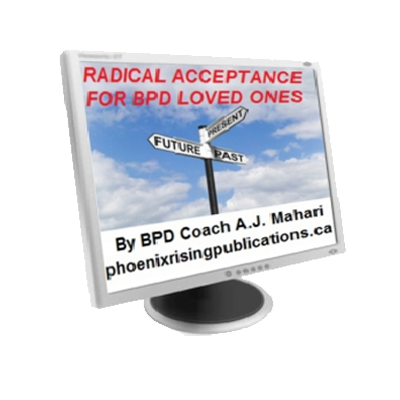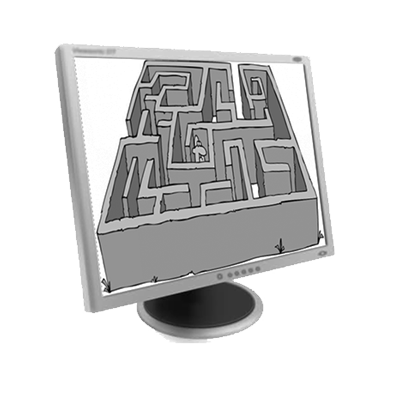Description
How To Know If a Loved One Has BPD
Life Coach, BPD (and Loved Ones) Coach and Peer-Therapist, A.J .Mahari, talks about how you can answer the nagging questions about whether or not you or a loved one of yours may have Borderline Personality in this 66 minute audio.
Mahari talks about her own approach from her own expertise in understanding what Borderline Personality Disorder is often thought to be, how it is pathologized, how psychiatrists have check-lists that mean a lot of people with BPD (high-functioning people) aren’t getting the diagnosis they need to be able to understand what they need to learn more about and become more aware about so that they can heal.
Mahari has a new-age and creative positive psychology approach to what BPD really is that she knows makes sense because she had BPD, diagnosed at the age of 18, a few months before her 19th birthday – how life was in the past up to that time in her life, and why, and then from her ensuing recovery process which was successfully completed when A.J. recovered from Borderline Personality Disorder in 1995.
A.J. Mahari believes, “Borderline Personality is stigmatized, marginalized, and pathologized painful human experience, meaning that the whole picture is rarely taken into account. People with BPD can recover. Their unwanted behaviour is not justifiable but needs to be understood as being about survival and what it means to live without a known stable sense of identity.”
As someone who has been recovered from BPD for 17 years now, A.J. Mahari knows what recovery is, what the process is and she also advocates that people seeking alternative methods of recovery like she offers in her BPD Coaching and Peer-therapy, do not require a formal diagnosis and in fact can create much better recovery outcomes without the negative, hopeless picture painted by the profession of psychiatry and its bible of said, the “DSM” which likes to label according only to its own checklist criteria and fails to take into account individual human experience in its richest, fullest, and often most painful context.
All Audio Programs are in mp3 format. All Ebooks are in PDF format. Audio Programs and Ebooks are available for electronic download only upon purchase.




